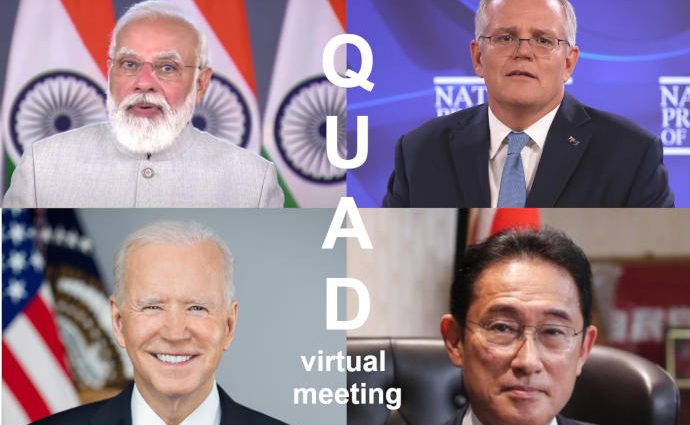The Russian invasion of Ukraine or Russia-Ukraine conflict has generated horrifying visuals which occupy the global broadcasting space today to instill a sense of complete hopelessness for the common man while the leaders go about their egotistical agendas directing their spin doctors to design the appropriate narrative for them.
If the history of Russia and Ukraine is put to a side for a moment, Putin’s actions represent a gross violation of the letter and spirit of the United Nations Charter – the fundamental document which should govern international actions of its nation states.
The document says
WE THE PEOPLES OF THE UNITED NATIONS DETERMINED
to save succeeding generations from the scourge of war…
to establish conditions under which justice and respect for the obligations arising from treaties and other sources of international law can be maintained…
In the purposes and principles of the UN Charter among other things, it was resolved by nation states to refrain in their international relations from the threat or use of force against the territorial integrity or political independence of any state, or in any other manner inconsistent with the Purposes of the United Nations.
Putin’s actions against Ukraine is not the first gross violation of the sacred document.
An honest reading of it will find the ‘doctrine of preemptive strike’, devised and inflicted upon the world by the US president George W. Bush, was directly ‘in the face of the UN Charter’ as seen above.
Many countries that could matter at the time, (including India) froze into inaction in disbelief.
For India, a dominant player now through QUAD and otherwise, the domestic and international acumen of its polity was going through a transformation at the time. Calls were being made upon its leaders to look at shifting the balance which was completely in Russia’s favor and thus by default seen being anti-US.
Thus, India could not go hammer and tong attacking the US move which had flouted the UN rules going against their failed attempts to get the UN support for their designed move. The government in India at the time was being led by the National Democratic Alliance and its leader was Prime Minister Atal Behari Vajpayee of the BJP as opposed to the Congress party which had a long political and family history of being close to the Russian interests.
And while India continued to emerge since then, its international moves are now governed by its own interest rather than as an underling of any of the ‘superpowers’.
Understandably, India is balancing its interests in all its international maneuvers and will not buy anything of the sort George W. Bush sold to the world back in 2003.
Speaking to a French daily Le Figaro India’s Minister for External Affairs, Dr S. Jaishankar said that the situation in Ukraine is the result of a complex chain of circumstances over the last 30 years and most countries such as India and France, which is very active, are seeking a diplomatic solution.
Not surprisingly, India abstained from a vote taken in the UN Security Council to call for a rare special emergency session of the UN General Assembly on Russia’s aggression against Ukraine.
Also read: Dr S. Jaishankar Down Under for QUAD, bilateral ties
The US has its own compulsions as a world leader. But under President Joe Biden is least like to commit any military involvement unless it is itself in a corner. But it is exploring all international avenues available. No wonder the QUAD leaders had a virtual meeting yesterday and discussed the Russian – Ukraine conflict.
Meeting virtually, Prime Minister Scott Morrison of Australia, Prime Minister Narendra Modi of India, Prime Minister Fumio Kishida of Japan, and President Joe Biden of the United States – not only reaffirmed their commitment to a free and open Indo-Pacific, in which the sovereignty and territorial integrity of all states is respected and countries are free from military, economic, and political coercion, they also discussed the ongoing Russia-Ukraine conflict and assessed its broader implications.
They agreed to stand up a new humanitarian assistance and disaster relief mechanism which will provide a channel for communication as they each address and respond to the crisis in Ukraine.
They will meet again in Tokyo in coming months.
Clearly, there is no joint statement from QUAD on the current Russia-Ukraine conflict. Each QUAD partner will address and respond to it as it sees fit. While Australia’s expression of it is clear – illegal, unjustified and unprovoked and a gross violation of international law and the UN Charter, India has been treading more cautiously.
The QUAD meeting assumes much more significance, in case China plays naughty in our region. That is why the four leaders’ reaffirmation of their commitment to keep the Indo-Pacific free from any international conflict is so vital for Australia.
Prime Minister Scott Morrison’s full statement can be read here.
Similar Posts by The Author:
- To save the Labor party’s chances, it is imperative Anthony Albanese exits
- Has Justin Trudeau sunk India-Canada bilateral relations to the point of ‘beyond repair’?
- Fatima Payman’s ‘Australia’s Voice’ – Lessons from Kaushaliya Vaghela’s Vic Labor stint
- Haryana puts Rahul Gandhi back in the box
- Dr TJ Rao OAM, a legend will live on

